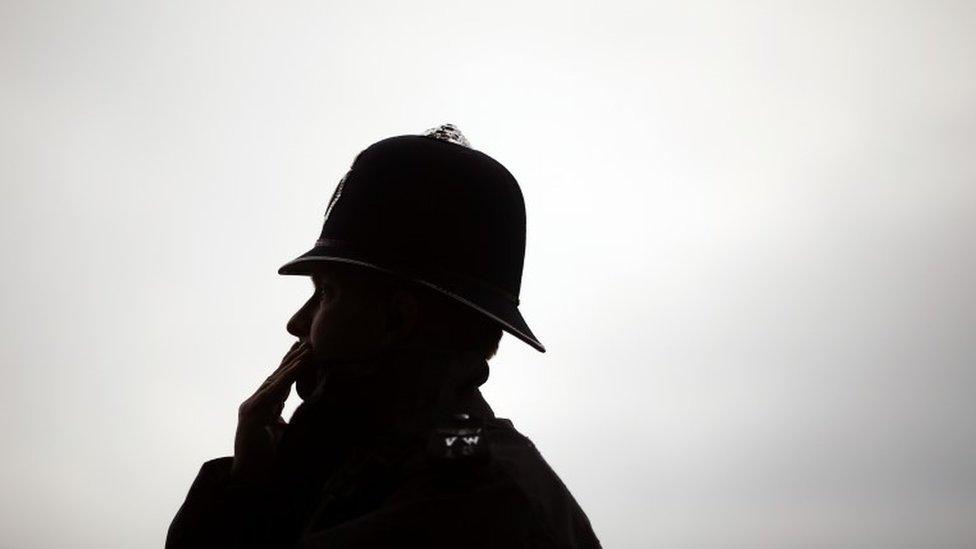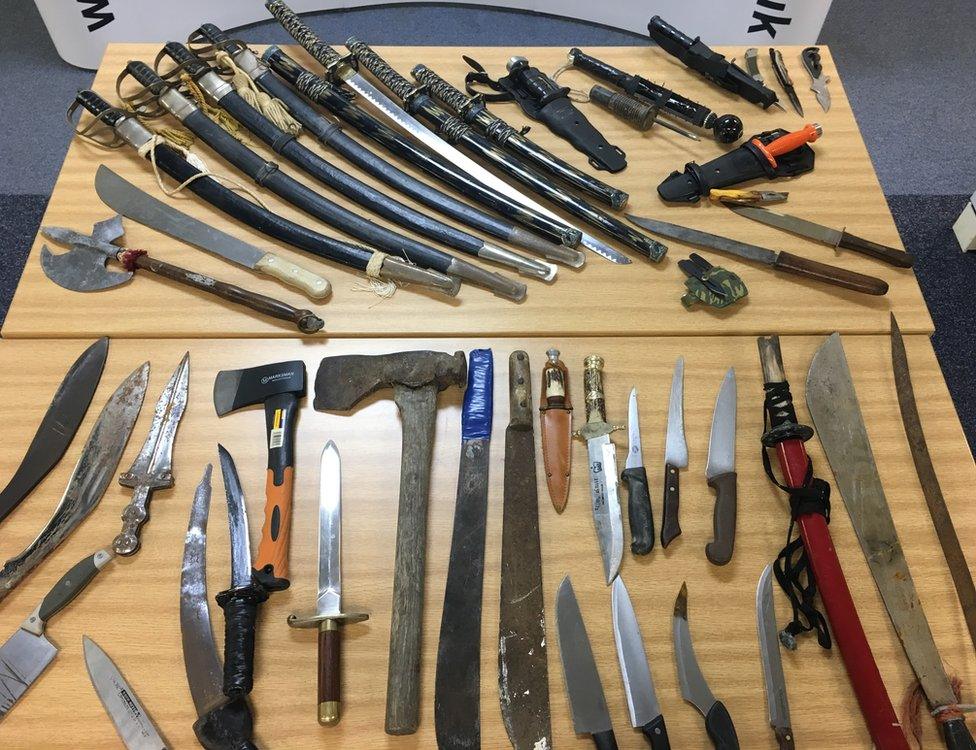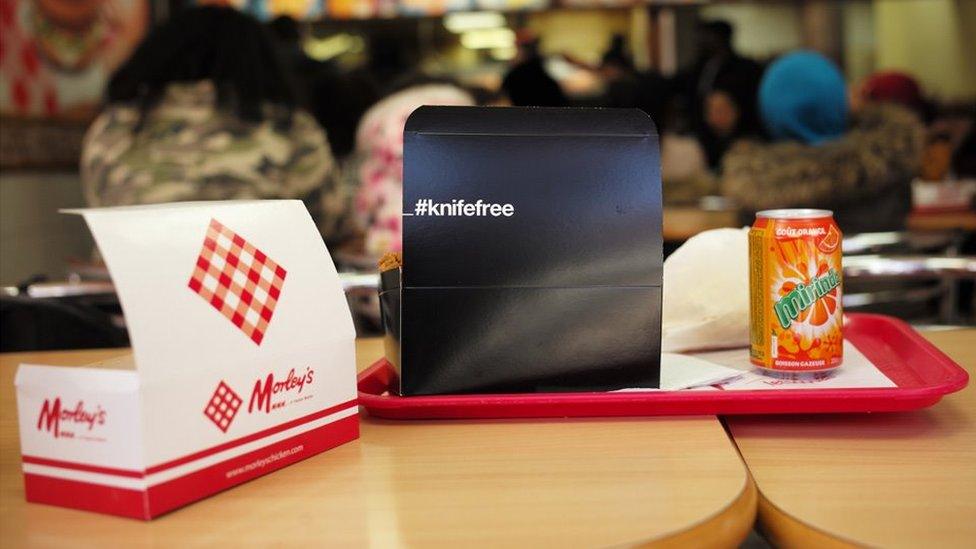Police stop publishing seized knives pictures
- Published

Thames Valley Police is taking part in Operation Sceptre, a campaign to reduce knife crime
A police force has stopped publishing images of knives seized in amnesties to avoid upsetting the public.
Photos of dozens of weapons laid out on tables by police are a common sight after successful knife amnesties.
But Thames Valley Police said it had stopped doing it because of the impact "knife imagery can have on those who see it".
The force is currently taking part in Operation Sceptre, a national campaign to reduce knife crime.
Its knife amnesty, which lasts until Sunday, involves members of the public anonymously dropping off weapons in special bins at 16 police stations across the region, external.

The results of knife amnesties have been posted on social media in the past
The force said it had made the decision to "stop publicising images of seized knives to help reduce the fear of knives and knife carrying in our local communities".
It came to the decision as a result of discussions held by the National Police Chiefs' Council and other forces.
A spokesperson added: "Although no formal guidance has been put in place, the force has decided that it will not publicise images of knives that have been seized throughout this week of action."
Allow X content?
This article contains content provided by X. We ask for your permission before anything is loaded, as they may be using cookies and other technologies. You may want to read X’s cookie policy, external and privacy policy, external before accepting. To view this content choose ‘accept and continue’.
It has released a video on social media promoting Operation Sceptre, which depicts youths fighting but no knives.
However, other police forces, including Essex Police, external and Wiltshire Police, external, have continued to display weapons during the campaign.
Diana Fawcett, chief executive at independent charity Victim Support, welcomed Thames Valley's decision.
She said: "From our work supporting victims, witnesses and those bereaved by knife crime we know that one of their main fears around the trial is being faced with images of the weapon.
"Therefore being subjected to these images through the press and social media has the potential to re-traumatise victims and we support this decision not to publicise them."
- Published15 August 2019

- Published18 July 2019